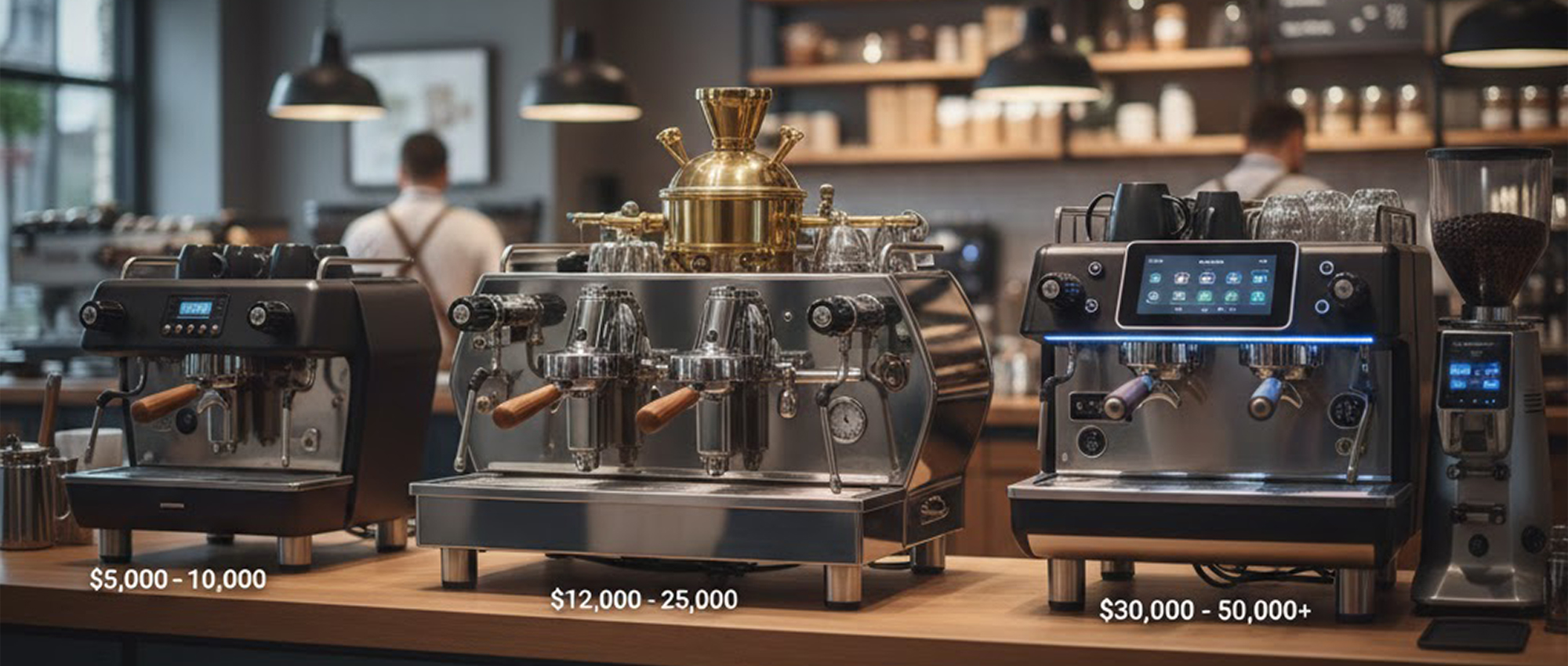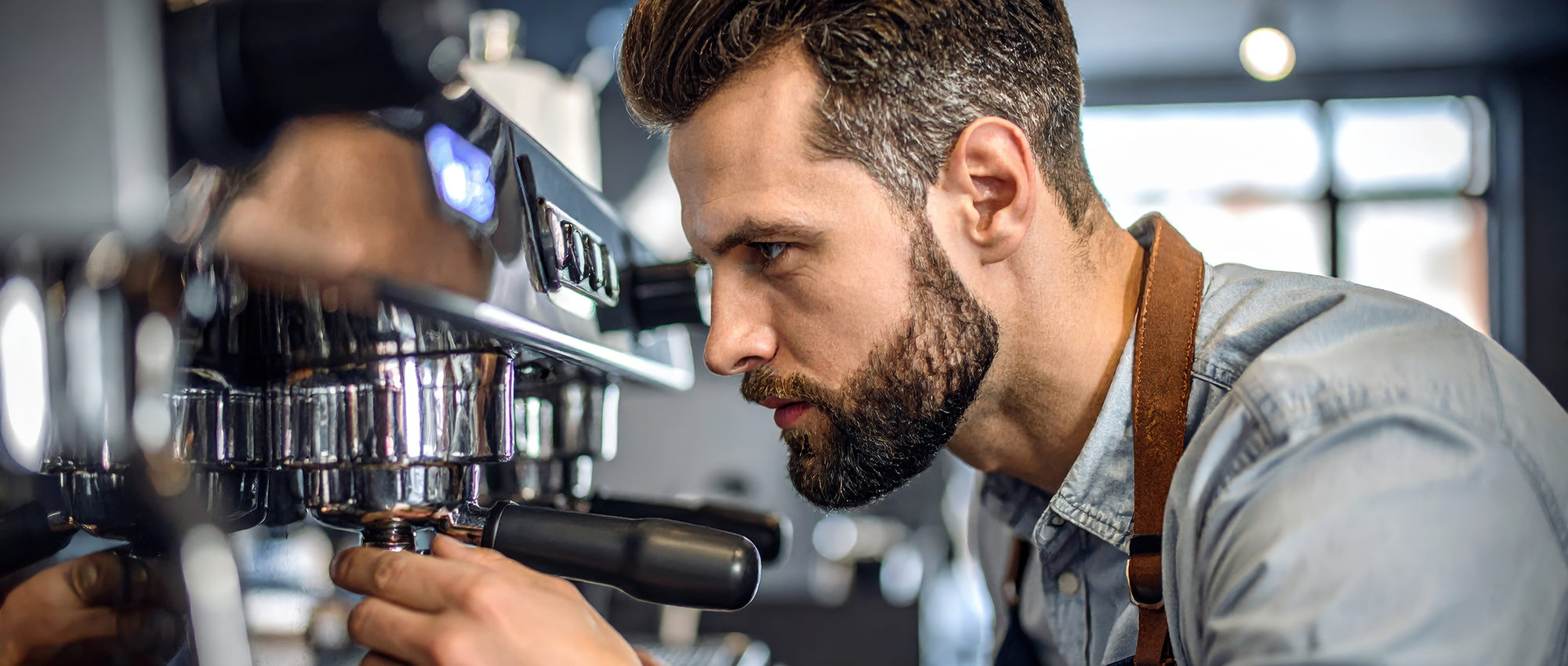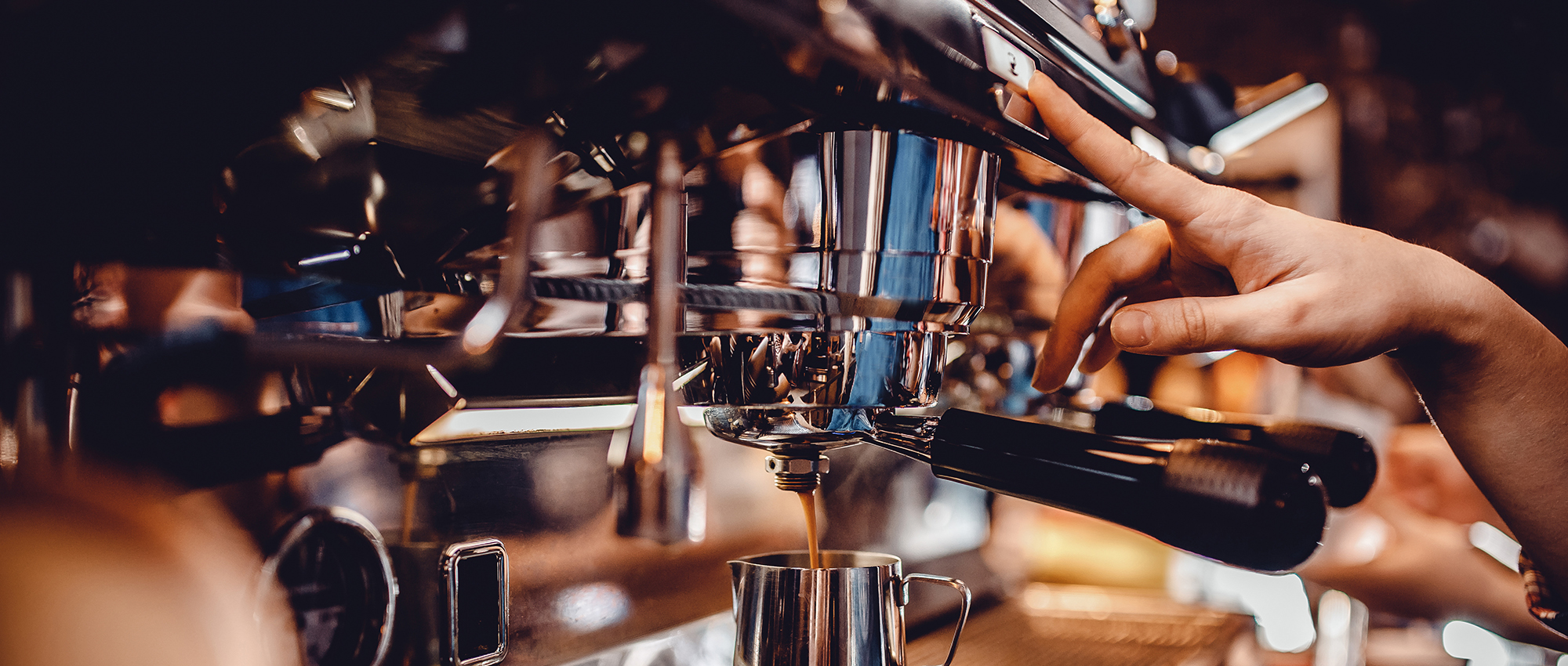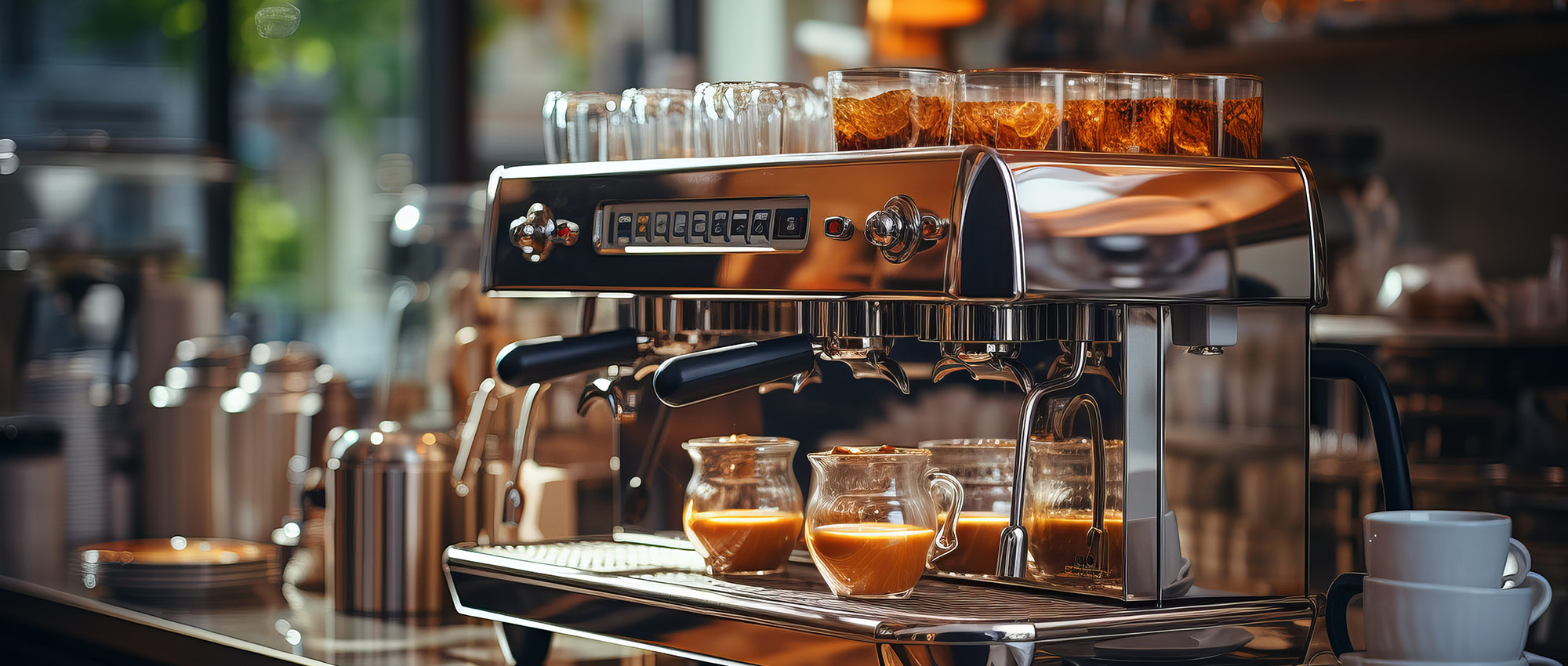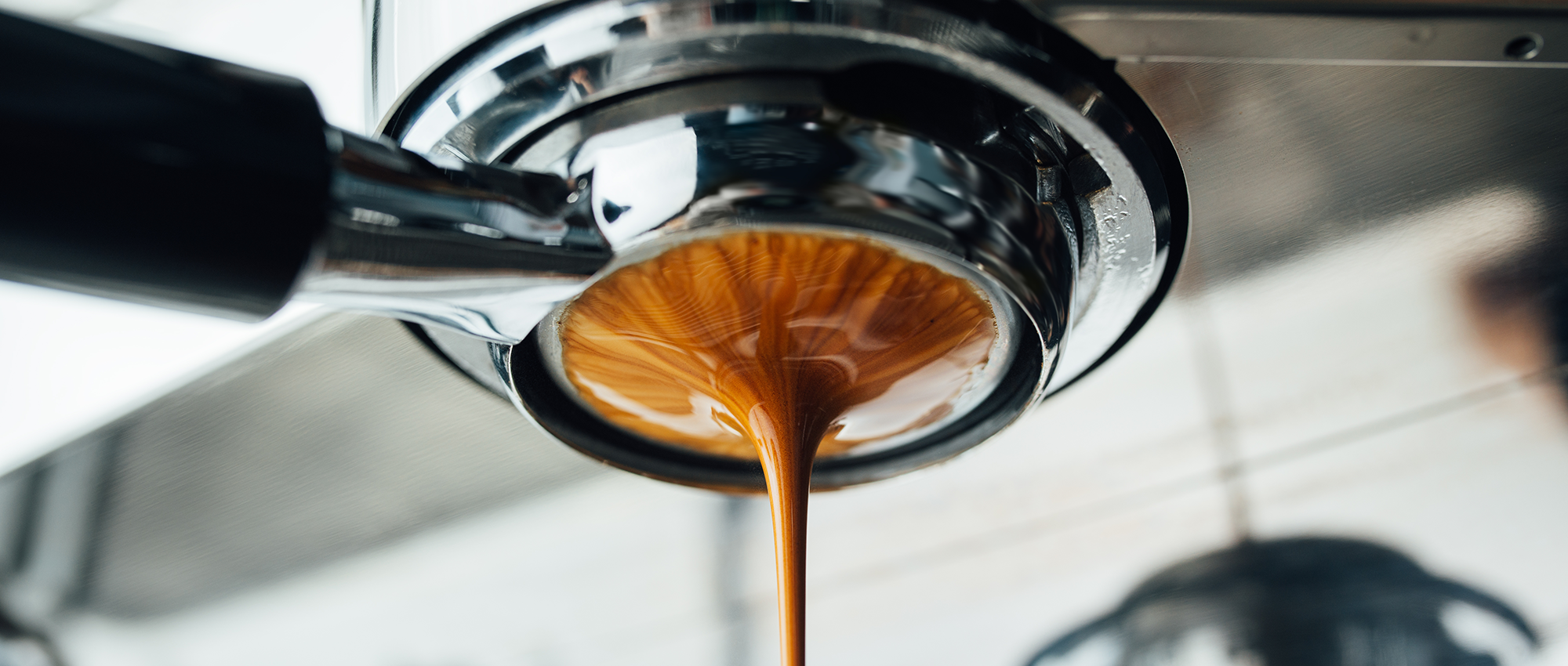Next-Generation Brewing Technologies: The Future of Commercial Coffee

Next-Generation Brewing Technologies: The Future of Commercial Coffee
The commercial coffee industry stands at the threshold of a technological revolution that promises to transform how coffee is brewed, served, and experienced. Next-generation brewing technologies are reshaping traditional coffee preparation methods, introducing unprecedented levels of precision, consistency, and efficiency that were unimaginable just a decade ago. These innovations extend far beyond simple automation, incorporating artificial intelligence, precision engineering, and data analytics to create brewing systems that adapt, learn, and optimize performance in real-time.
As consumer expectations continue to evolve toward higher quality and more personalized coffee experiences, commercial coffee operations must embrace these technological advances to remain competitive. The integration of smart brewing systems, IoT connectivity (Internet of Things), and advanced materials science is creating opportunities for coffee businesses to achieve new levels of operational excellence while delivering consistently exceptional products that build customer loyalty and drive profitability.
Smart Brewing Systems and IoT Integration
The Internet of Things (IoT) has revolutionized commercial coffee brewing by creating interconnected systems that monitor, analyze, and adjust brewing parameters automatically. Smart brewing technologies represent a fundamental shift from traditional manual operations to intelligent systems that can predict maintenance needs, optimize recipes, and ensure consistent quality across multiple locations.
Real-Time Monitoring and Control
Next-generation brewing systems incorporate multiple sensors that continuously monitor water temperature, pressure, flow rates, extraction time, and environmental conditions. This comprehensive data collection enables precise control over every aspect of the brewing process, eliminating human error and ensuring that each cup meets predetermined quality standards.
Advanced monitoring systems can detect minute variations in brewing conditions and automatically adjust parameters to maintain consistency. Temperature sensors accurate to within 0.1 degrees Fahrenheit ensure optimal extraction, while pressure monitoring systems maintain precise brewing pressure throughout the extraction cycle. Flow rate sensors detect changes in grind consistency or filter blockages, alerting operators to potential issues before they affect product quality.
La Marzocco has been at the forefront of this technology integration, incorporating IoT connectivity and real-time monitoring capabilities into their latest espresso machines, enabling operators to track performance metrics and adjust brewing parameters remotely through cloud-based platforms.
Cloud-Based Analytics and Optimization
Modern brewing systems leverage cloud computing to analyze vast amounts of brewing data, identifying patterns and optimization opportunities that would be impossible to detect manually. Machine learning algorithms process historical brewing data, environmental conditions, and quality assessments to continuously refine brewing parameters and improve results.
Cloud connectivity also enables remote monitoring and management of brewing equipment across multiple locations. Operators can monitor performance, adjust recipes, and troubleshoot issues from centralized locations, reducing labor costs and ensuring consistent quality standards across entire coffee chains. Real-time alerts notify managers of equipment malfunctions, maintenance requirements, or quality deviations, enabling rapid response and minimizing downtime.
Predictive Maintenance Technology
Advanced brewing systems incorporate predictive maintenance capabilities that analyze equipment performance data to anticipate maintenance needs before failures occur. Sensors monitor motor performance, valve operation, heating element efficiency, and component wear patterns to predict when maintenance will be required.
This proactive approach to equipment maintenance reduces unexpected downtime, extends equipment lifespan, and minimizes repair costs. Predictive maintenance systems can automatically order replacement parts, schedule service appointments, and provide detailed maintenance instructions to technicians, streamlining the entire maintenance process.
Precision Temperature Control Technologies
Temperature control represents one of the most critical aspects of coffee brewing, with even small variations significantly impacting extraction quality and flavor development. Next-generation brewing technologies employ sophisticated thermal management systems that deliver unprecedented temperature precision and stability.
Multi-Zone Heating Systems
Advanced brewing equipment features multi-zone heating systems that maintain different temperatures for various brewing stages and components. These systems can simultaneously maintain optimal brewing temperature, steaming temperature, and cup warming temperatures while minimizing energy consumption and thermal interference between zones.
Variable temperature brewing capabilities allow operators to optimize extraction for different coffee origins, roast levels, and brewing methods. Single brewing systems can now accommodate multiple coffee types with different temperature requirements, maximizing menu flexibility without requiring additional equipment investments.
Wega has developed sophisticated thermal management systems in their commercial espresso machines, featuring advanced PID controllers and multi-zone heating that maintains precise temperature control across different brewing groups simultaneously.
Thermal Stability and Recovery
Next-generation heating systems feature rapid thermal recovery capabilities that maintain consistent brewing temperatures even during high-volume service periods. Advanced thermal mass management and efficient heating elements ensure that temperature fluctuations are minimized between brewing cycles, maintaining extraction quality throughout busy service periods.
Thermal imaging sensors monitor temperature distribution across brewing surfaces, ensuring uniform heat application and preventing hot spots that could negatively impact extraction. These systems provide real-time temperature mapping that helps operators identify and correct thermal irregularities before they affect product quality.
Advanced Pressure Profiling Systems
Pressure profiling technology represents a significant advancement in brewing control, allowing operators to customize extraction pressure throughout the brewing cycle to optimize flavor development and extraction efficiency.
Dynamic Pressure Control
Next-generation espresso machines feature sophisticated pressure profiling systems that can adjust extraction pressure in real-time based on predetermined profiles or automated feedback systems. These systems can implement pre-infusion phases, gradual pressure ramps, and pressure reductions that optimize extraction for specific coffee characteristics.
Programmable pressure profiles enable operators to create custom extraction curves for different coffee types, allowing a single machine to optimize brewing for various origins, roast levels, and desired flavor profiles. This flexibility enables coffee shops to offer diverse menu options while maintaining optimal extraction quality for each product.
Rocket Espresso has integrated advanced pressure profiling technology into their commercial machines, featuring precise pressure control systems that allow baristas to create custom extraction profiles for different coffee types while maintaining consistency across service periods.
Flow Rate Optimization
Advanced brewing systems monitor and control water flow rates throughout the extraction process, ensuring optimal contact time between water and coffee grounds. Variable flow rate technology can implement different flow patterns for different brewing stages, maximizing extraction efficiency while preventing over-extraction or channeling.
Flow profiling systems work in conjunction with pressure control to create comprehensive extraction profiles that optimize every aspect of the brewing process. These systems can automatically adjust for variations in grind size, coffee density, or environmental conditions to maintain consistent extraction results.
Automated Grinding and Dosing Technologies
Next-generation grinding and dosing systems incorporate precision mechanics, weight-based dosing, and automated adjustment capabilities that eliminate human error and ensure consistent coffee preparation.
Gravimetric Dosing Systems
Weight-based dosing technology eliminates the inconsistencies associated with time-based or volumetric dosing methods. Precision scales integrated into grinding systems ensure that each dose contains exactly the specified amount of coffee, regardless of variations in bean density, grind consistency, or environmental conditions.
Real-time weight monitoring during grinding allows systems to make micro-adjustments throughout the dosing process, achieving accuracy levels within 0.1 grams. This precision ensures consistent extraction results and reduces coffee waste while maintaining optimal brewing ratios.
Mahlkonig has pioneered gravimetric dosing technology in commercial coffee grinders, incorporating precision weighing systems that automatically adjust grinding time based on actual coffee weight rather than predetermined time intervals, ensuring consistent dosing accuracy.
Automated Grind Adjustment
Smart grinding systems incorporate feedback mechanisms that automatically adjust grind size based on extraction performance data. These systems can analyze extraction times, flow rates, and taste profiles to determine optimal grind settings for different coffees and environmental conditions.
Machine learning algorithms process extraction data to identify patterns and optimize grind settings for specific coffee characteristics. These systems continuously refine grinding parameters to maintain optimal extraction as coffee ages, environmental conditions change, or equipment performance varies.
Commercial Brewing Automation
Beyond espresso machines, automated brewing systems for drip coffee and specialty preparations have revolutionized commercial coffee production, enabling consistent quality and increased efficiency across diverse brewing methods.
Automated Batch Brewing
Curtis has developed comprehensive automated brewing systems that control every aspect of batch coffee production, from water temperature and flow rate to steeping time and filtration. These systems can store multiple brewing profiles and automatically adjust parameters based on coffee type, batch size, and desired strength.
Advanced batch brewing systems incorporate pre-infusion technology, pulse brewing capabilities, and precise temperature control that ensures optimal extraction for different coffee origins and roast profiles. Automated cleaning cycles and descaling programs maintain equipment performance while reducing labor requirements.
Programmable Brewing Profiles
Modern commercial brewing equipment features programmable profiles that store optimal brewing parameters for different coffee types and preparation methods. These systems can automatically switch between profiles based on operator selection or integration with point-of-sale systems, ensuring consistent preparation without manual adjustment.
Artificial Intelligence and Machine Learning
Artificial intelligence represents the next frontier in brewing technology, enabling systems to learn from experience, adapt to changing conditions, and optimize performance automatically.
Recipe Development and Optimization
AI-powered brewing systems can analyze vast databases of brewing parameters, extraction data, and sensory evaluations to develop optimized brewing recipes automatically. Machine learning algorithms identify correlations between brewing variables and flavor outcomes, creating recipes that maximize desired characteristics while minimizing defects.
These systems can continuously refine recipes based on customer feedback, sensory evaluations, and performance data, ensuring that brewing parameters remain optimized as conditions change. AI recipe development can also create personalized brewing profiles for individual customers based on their preferences and consumption patterns.
Nuova Simonelli has integrated intelligent brewing algorithms into their latest espresso machines, featuring systems that learn from extraction data and automatically adjust brewing parameters to maintain optimal quality as environmental conditions change or coffee characteristics evolve.
Quality Control and Consistency
Advanced brewing systems incorporate computer vision and sensory analysis technologies that evaluate product quality in real-time. Image recognition systems can assess crema quality, color consistency, and visual defects, while electronic taste sensors analyze flavor compounds and extraction characteristics.
Machine learning algorithms process quality data to identify trends, predict quality issues, and recommend corrective actions. These systems can automatically adjust brewing parameters when quality metrics deviate from target ranges, ensuring consistent product quality without manual intervention.
Sustainable and Energy-Efficient Technologies
Next-generation brewing technologies prioritize sustainability and energy efficiency, incorporating advanced materials, intelligent power management, and waste reduction systems that minimize environmental impact while reducing operational costs.
Energy Management Systems
Smart power management systems optimize energy consumption by monitoring equipment usage patterns and automatically adjusting power delivery based on demand. These systems can predict brewing schedules and pre-heat equipment only when needed, reducing energy waste while maintaining operational readiness.
Heat recovery systems capture and reuse thermal energy from brewing processes, steam generation, and cooling systems. Advanced thermal management can redirect waste heat to pre-warm incoming water, heat brewing surfaces, or provide space heating, significantly reducing overall energy consumption.
Water Conservation Technologies
Advanced water management systems monitor and optimize water usage throughout brewing processes, reducing waste while maintaining quality standards. Recirculation systems can reuse rinse water for cleaning processes, while precision water delivery systems eliminate over-filling and spillage.
Smart water filtration systems optimize filter replacement schedules based on actual usage and water quality data, reducing waste while ensuring optimal water quality. These systems can automatically flush lines only when necessary, reducing water waste while maintaining sanitary conditions.
Integration with Point-of-Sale and Customer Management
Next-generation brewing technologies integrate seamlessly with modern point-of-sale systems and customer management platforms, creating comprehensive operational ecosystems that enhance efficiency and customer experience.
Automated Order Processing
Integrated brewing systems can receive orders directly from POS systems and automatically begin brewing processes, reducing order fulfillment time and minimizing errors. These systems can queue orders, prioritize brewing sequences, and coordinate multiple brewing stations to optimize workflow efficiency.
Customer preference data can be automatically transmitted to brewing systems, enabling personalized beverage preparation without manual input. Regular customers can have their preferred brewing parameters automatically applied, ensuring consistent experiences while reducing preparation time.
Inventory and Supply Chain Integration
Smart brewing systems monitor ingredient usage in real-time, automatically updating inventory levels and triggering reorder notifications when supplies run low. Integration with supply chain management systems can automate ordering processes and ensure that critical ingredients are always available.
Usage analytics help operators optimize inventory levels, reduce waste, and improve cash flow management. Predictive analytics can forecast demand patterns and adjust inventory levels seasonally or based on historical usage data.
Future Developments and Emerging Technologies
The evolution of brewing technologies continues to accelerate, with emerging innovations promising even greater advances in quality, efficiency, and customer experience.
Nanotechnology and Advanced Materials
Research into advanced materials and nanotechnology applications promises to revolutionize brewing equipment design and performance. Nano-coated surfaces could provide self-cleaning properties, while advanced ceramic materials might offer superior thermal properties and durability.
Smart materials that respond to environmental conditions could enable brewing equipment that automatically adapts to temperature and humidity changes, maintaining optimal performance across varying conditions.
Augmented Reality and Virtual Training
Augmented reality technologies are beginning to appear in brewing equipment interfaces, providing real-time guidance, troubleshooting assistance, and training capabilities. These systems can overlay digital information onto physical equipment, guiding operators through complex procedures and highlighting potential issues.
Virtual reality training systems enable comprehensive equipment training without requiring access to actual brewing equipment, reducing training costs and improving skill development outcomes.
Implementation Strategies for Commercial Operations
Successfully implementing next-generation brewing technologies requires careful planning, staff training, and systematic integration with existing operations.
Technology Assessment and Selection
Commercial operations should conduct thorough assessments of their current brewing capabilities, identifying areas where technological upgrades could provide the greatest return on investment. Considerations should include volume requirements, quality goals, labor costs, and maintenance capabilities.
Pilot programs allow operations to test new technologies on a limited scale before committing to full implementation. These programs provide valuable insights into technology performance, staff training requirements, and integration challenges.
Staff Training and Change Management
Implementing advanced brewing technologies requires comprehensive staff training programs that address both technical operation and troubleshooting procedures. Training should emphasize the benefits of new technologies while addressing concerns about job displacement or increased complexity.
Change management strategies should involve staff in the technology selection and implementation process, ensuring buy-in and reducing resistance to new procedures. Ongoing training programs help staff stay current with technology updates and optimization opportunities.
Return on Investment and Business Benefits
Next-generation brewing technologies deliver measurable returns through improved efficiency, reduced labor costs, enhanced product quality, and increased customer satisfaction.
Operational Efficiency Gains
Automated brewing processes reduce labor requirements while increasing throughput and consistency. Smart systems can operate with minimal supervision, allowing staff to focus on customer service and other value-added activities.
Predictive maintenance and quality control systems reduce equipment downtime and product waste, directly impacting profitability. Energy-efficient technologies reduce utility costs, while inventory optimization systems improve cash flow management.
Quality and Customer Experience Improvements
Consistent product quality builds customer loyalty and supports premium pricing strategies. Personalized brewing capabilities enhance customer satisfaction and encourage repeat visits.
Advanced brewing technologies enable menu diversification and innovation, allowing operations to differentiate themselves in competitive markets while maintaining operational efficiency.
Conclusion
Next-generation brewing technologies represent a transformational opportunity for commercial coffee operations to achieve new levels of quality, efficiency, and profitability. From AI-powered recipe optimization to IoT-enabled predictive maintenance, these innovations address the most significant challenges facing modern coffee businesses while opening new possibilities for growth and differentiation.
The successful implementation of these technologies requires strategic planning, adequate investment, and commitment to ongoing learning and adaptation. Operations that embrace these advances will be well-positioned to meet evolving customer expectations while achieving sustainable competitive advantages in an increasingly demanding marketplace.
As the coffee industry continues to evolve, those who invest in next-generation brewing technologies today will be the leaders of tomorrow’s coffee landscape. The future belongs to operations that combine technological innovation with operational excellence, creating coffee experiences that consistently exceed customer expectations while driving business success.
Ready to explore next-generation brewing technologies for your operation? Bean and Brew Technologies specializes in cutting-edge commercial coffee equipment and can help you evaluate, select, and implement the brewing technologies that will drive your business forward. Contact our experts today to discover how next-generation brewing systems can transform your coffee program and boost your competitive advantage.
Gary Downey
Gary Downey
Tags :
Coffee U Sunday: Weekly Coffee Business Education
Get expert coffee insights delivered to your inbox every Sunday. Equipment guides, brewing tips, business strategies, and industry trends to help your business succeed.
Categories
Categories
- Coffee Brewers (1)
- Coffee Business Success (9)
- Coffee Grinders (1)
- Coffee Shop Owners (8)
- Coffee Technology (3)
- Cold Brew Coffee (2)
- Espresso Machines (9)
- Espresso Shots (3)
- La Marzocco (2)
- Maintenance & Service (3)
- Specialty Coffee Drinks (3)
- Water Treatment (1)
📚 Equipment Guides
Comprehensive breakdowns of different machine types, helping you make informed purchasing decisions
 Maintenance Tips
Maintenance Tips
Professional techniques to keep your equipment running at peak performance and extend its lifespan
 Brewing Science
Brewing Science
Understand the ‘why’ behind extraction, temperature stability, and equipment design
 Troubleshooting Help
Troubleshooting Help
Common problems and solutions to minimize downtime and service calls
 Business Insights
Business Insights
ROI calculations, workflow optimization, and equipment selection for your specific needs
 Technology Explained
Technology Explained
Demystifying features like PID control, pressure profiling, and heat exchange systems
Coffee U Sunday: Weekly Coffee Business Education
Get expert coffee insights delivered to your inbox every Sunday. Equipment guides, brewing tips, business strategies, and industry trends to help your business succeed.
Share
Use our search function or browse by category to find exactly what you need. Can’t find an answer? Contact us directly, your question might inspire our next Coffee U article! As we grow, so will this resource, shaped by the real needs of coffee professionals like you.
Start exploring Coffee U today and discover why Bean & Brew Technologies is committed to elevating the coffee industry through education and exceptional service.

